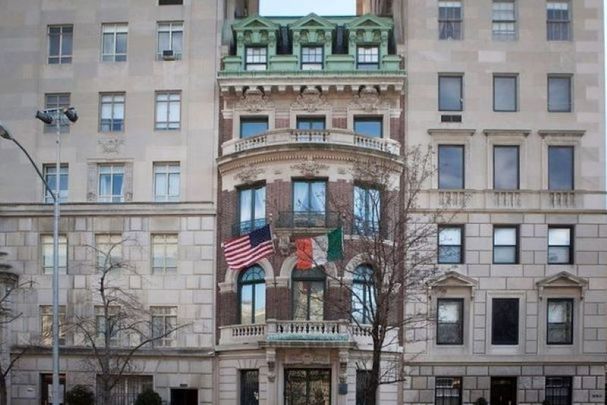It’s not a sale of the prime Fifth Avenue location of the American Irish Historical Society that’s needed, but rather a new board of directors and fresh leadership.
The battle to save the American Irish Historical Society building on New York’s famed Fifth Avenue has hit full stride these past couple of weeks, with a front-page article about its possible sale by Dan Barry in The New York Times, a petition to stop the sale signed by 40,000 Irish Americans, and the announcement by the New York State Attorney General Letitia James that she would be monitoring any sale closely.
“The American Irish Historical Society building on Fifth Avenue has been a focal point of the Irish experience in America for decades, and I take the recent concerns regarding the future of the building seriously. We are vigilantly monitoring the situation, and I want to reassure Irish communities here and abroad that any potential transaction would not move forward without consent from my office or consent from the courts,” James said in a St. Patrick’s Day statement.
That seems like a comprehensive approach by a skilled politician to an issue that has created enormous friction in the Irish American community.
Read more
The society was founded in 1897 in Boston but has made its home in New York since 1904. It fell on hard times and was saved from closure by Dr. Kevin Cahill, the distinguished medic who became president-general for decades and still wields much of the control of the institute.
It maintains the most complete private collection of Irish American and Irish literature and history in the United States. The society formerly published a journal entitled The Recorder and hosts cultural and historical events.
Expenses are usually underwritten by the proceeds of the society’s annual gala dinner which was not held during the pandemic year of 2020. In its heyday, the society honored President Ronald Reagan and Bono to name just two.
The decision to sell the building came as a severe shock to many in the Irish community and most notably the Irish government, which had contributed $1 million recently to the building’s refurbishment.
The building is for sale at $52 million. The plan from the board members going forward seemed to be to move elsewhere.
The lack of consultation with the community and the Irish government has led to a deep sense of frustration that the landmark building of the Irish in the United States has been so quickly brought forward to be disposed of.
Cahill deserves enormous credit for saving the society building in the first case, but the board's decision to act unilaterally has rightfully caused enormous concern in the community.
The board has been remarkably silent on what brought about the decision to sell, and why the attempt to conduct the sale was made in complete secrecy with no community involvement.
Read more
The future plans for the society and how it intends to protect, collate and secure the invaluable historical documents have not been revealed by the board.
The fact that the board acted without any consultation and has steadfastly refused to be transparent on its future plans, not to mention the future of Irish events at the society, is unacceptable.
The comments by the society’s spokesman Guy L. Smith to the Times revealed an arrogance and lack of knowledge that was truly shocking as he batted away concerns with frivolous answers that were risible in several instances.
It is clear that a new board, one that is transparent, open, and honest, needs to be in place which is likely the direction the attorney general will head towards if there is no agreement on the future of the Fifth Avenue mansion.
The tragedy is that with proper consultation with the Irish government and the Irish American community, the issue could easily have been resolved and an agreed plan for the future put in place.
The American Irish Historical Society is a magnificent attribute to the Irish American community and Cahill deserves enormous credit for saving it at one point. Undoubtedly it needs saving again, but the current board seems unable or unwilling to act correctly. They should be replaced.




Comments